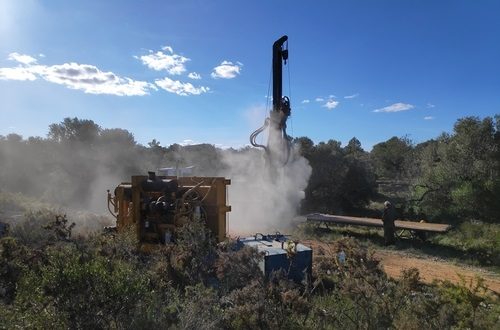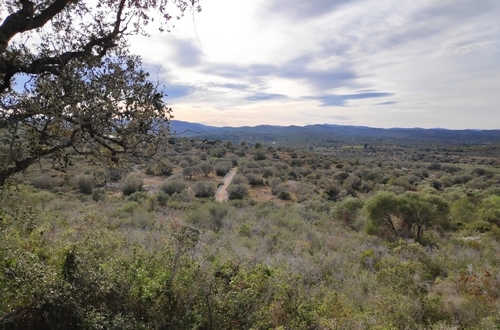
About our Spanish hills
7 July 2019
/
Before we moved to Spain we started the process of buying rural land in the region we were moving to. Let’s start with the bad news. Since the process is so complicated and time consuming it still hasn’t finished yet. The entire land consists out of 5 different plots. At the moment, 4 out of 5 have been registered correctly. The registration of the fifth one will probably take at least another half year. The good news is that since last week the plot that we want to build on has finally been registered properly. So we are again a little step further and can now move on to the next phase of getting permissions! 😀
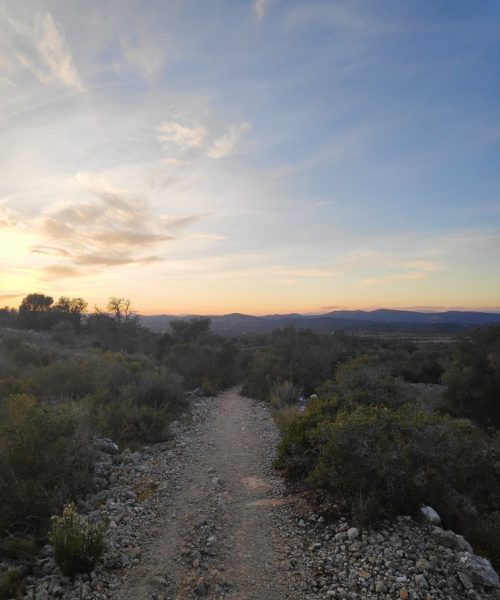
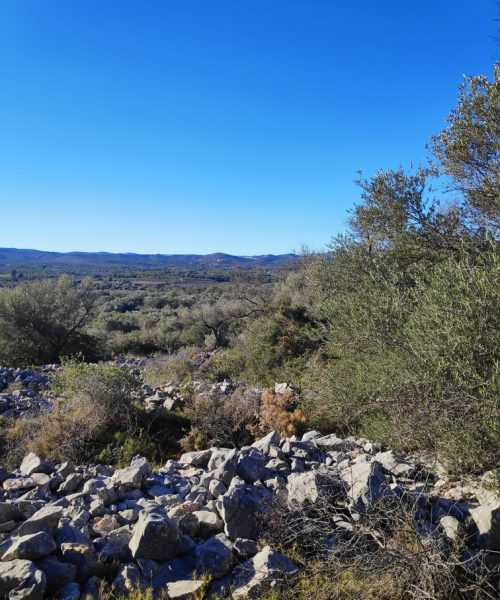
So what exactly did we buy?
An amazing piece of land, at least according to us. It has hills on the south, the west and the east, with a small valley in between. The hills have old walled terraces, which were built many centuries ago to prevent erosion and retain water. On the terraces there is an old olive grove of almost 200 trees. According to a local specialist on olive trees the oldest are about 700 years old. Approximately the time at which the region was reconquered from the Moors during the Reconquista! Besides the olives there are also almonds, carobs and a mix of mediterranean herbs growing on the hills. Part of the land is protected and so are the surrounding plots. Making sure that it will remain an unspoilt, natural area in the future. From the top of the hills you have a great view on the valley and the mountain range further inland. On the eastern and southern hills you can also see the coast, including the peninsula of Peñiscola.
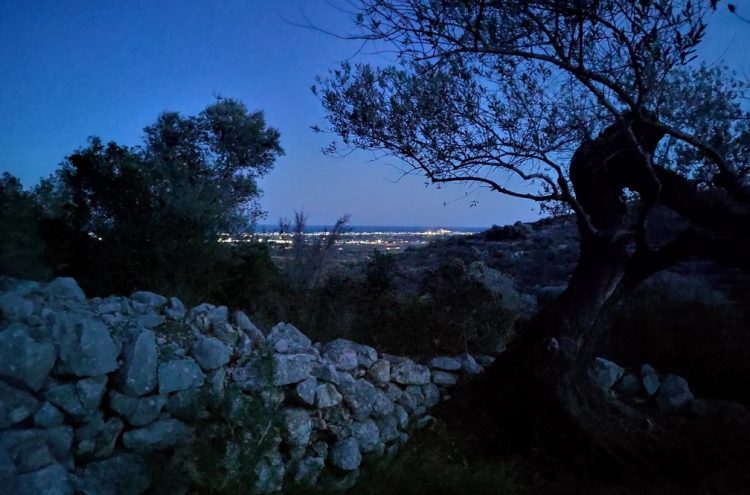
So with such amazing views, we will probably build our house on top of the hill overlooking the castles of Peñiscola and Cervera del Maestre, right? Nope. Those parts are protected. Besides, from our experience the top of the hill isn’t a nice place to live. Sure, it has a better view. However, it also tends to catch a lot of wind. This can be nice during the hottest months of the summer, but is not that great during the rest of the year. The part where we want to build the house is a terrace on a southern slope. This terrace still has a nice view on the valley. However, it’s more sheltered, sunny and warm than the top of the hills. Something which should extend the pool season considerably! So we think that it has the perfect climate for opening a small-scale hotel that receives guests all year long, instead of only in the summer months.
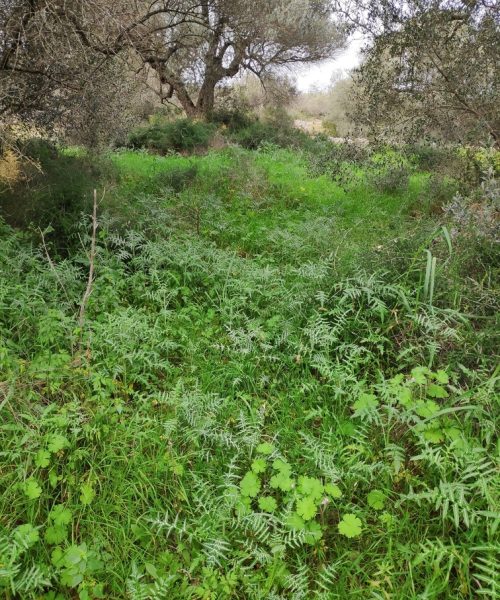
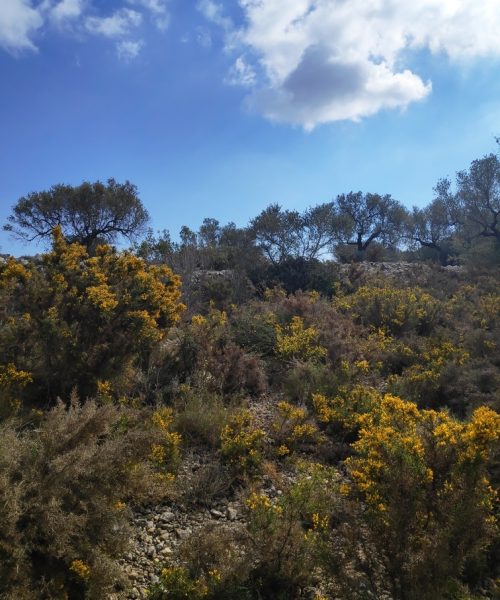
To get to the land and enjoy the views is un poco complicated at the moment. People that know us better might know we are making it a bit of habit to take the most difficult path. However, this time we took it literally. The road to the land that we have bought, is basically non-existent. The first part is a rocky gravel path. Definitely not wide enough for a modern car to drive comfortably without the risk of scratches on the side. Or smooth enough to not fear breaking your suspension and tires. So much for the good part. Now about the bad part. The road ends. It doesn’t go up to where we want to build the house. The last few hundred meters, the total road is about 820 meters long, is a stretch of bushes, trees, walled terraces and big rocks. So improving the road is top priority!
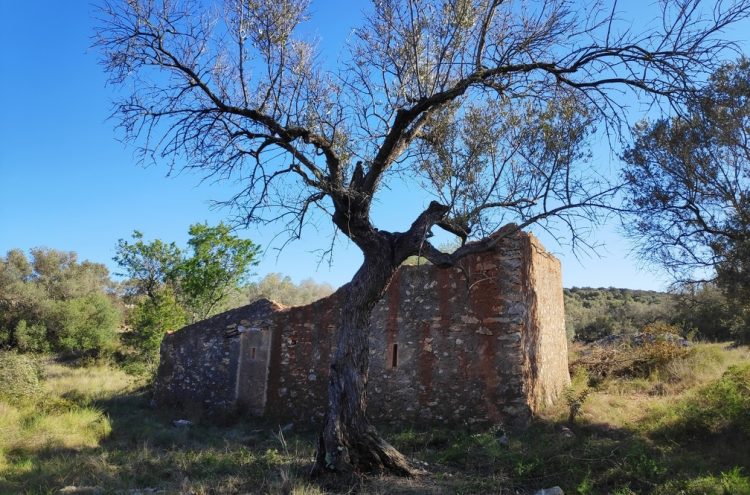
When arriving at the land one of the first things you will notice is a small building. It’s an old ruin, which we named Waldek’s Winebar. Locals call it a „casita”, a small house, or a „corral”, a place where they kept cattle. It has been abandoned for many decades, so the wooden door is rotting away and the roof has collapsed a long time ago.
Besides Waldek’s Winebar, we have also found some other small ruins on the land. These were probably used as a storage or a place to sleep. There is also an old wide, elevated road crossing the land. It’s not connected to another wide road, only to some small paths. We have no idea what the road was used for. So while we explore, restore and redevelop the area in the coming years, we hope to learn a lot more about the history of the road, Waldek’s Winebar and the rest of the land!
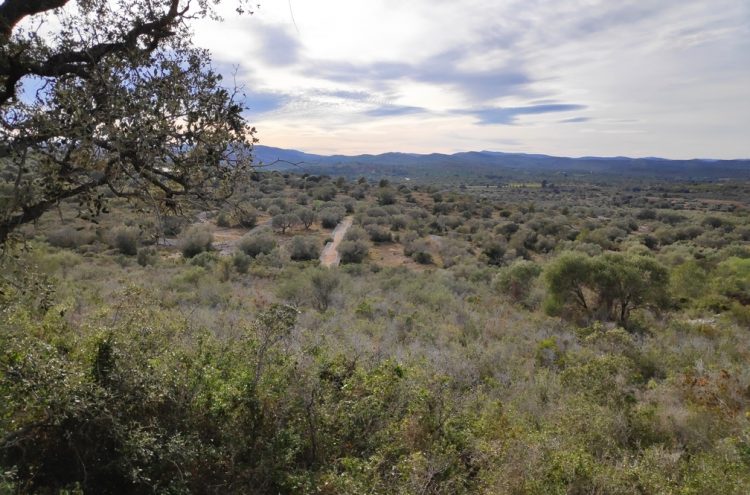


You May Also Like
